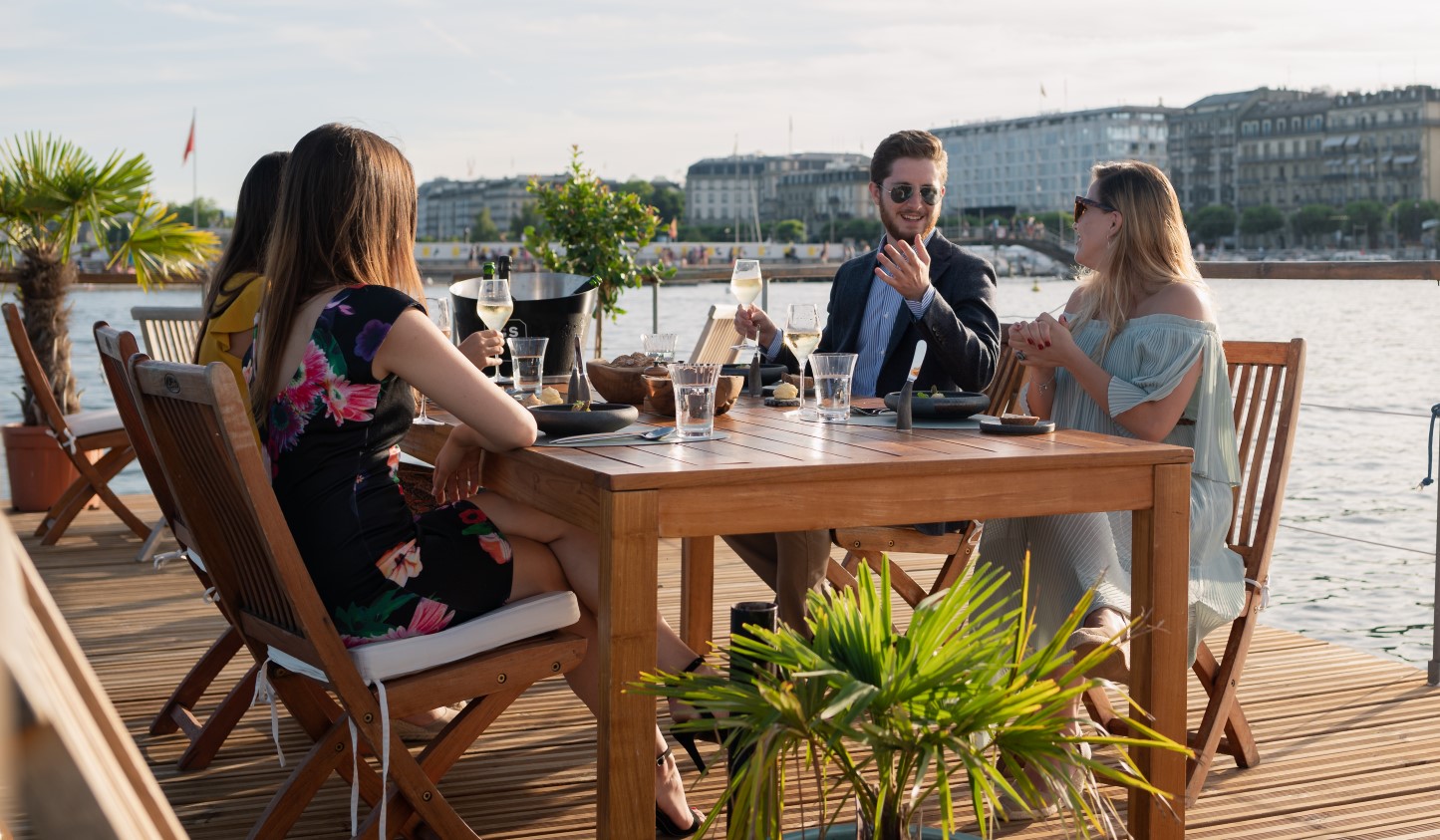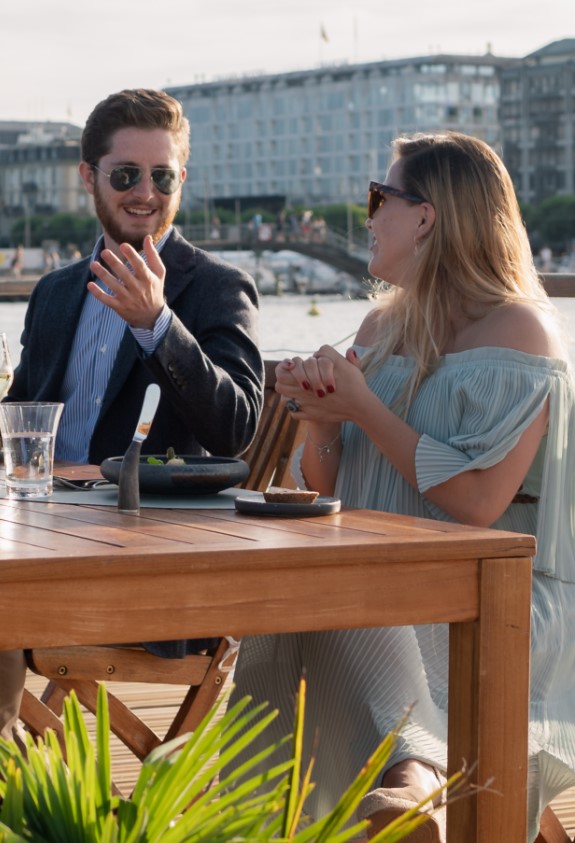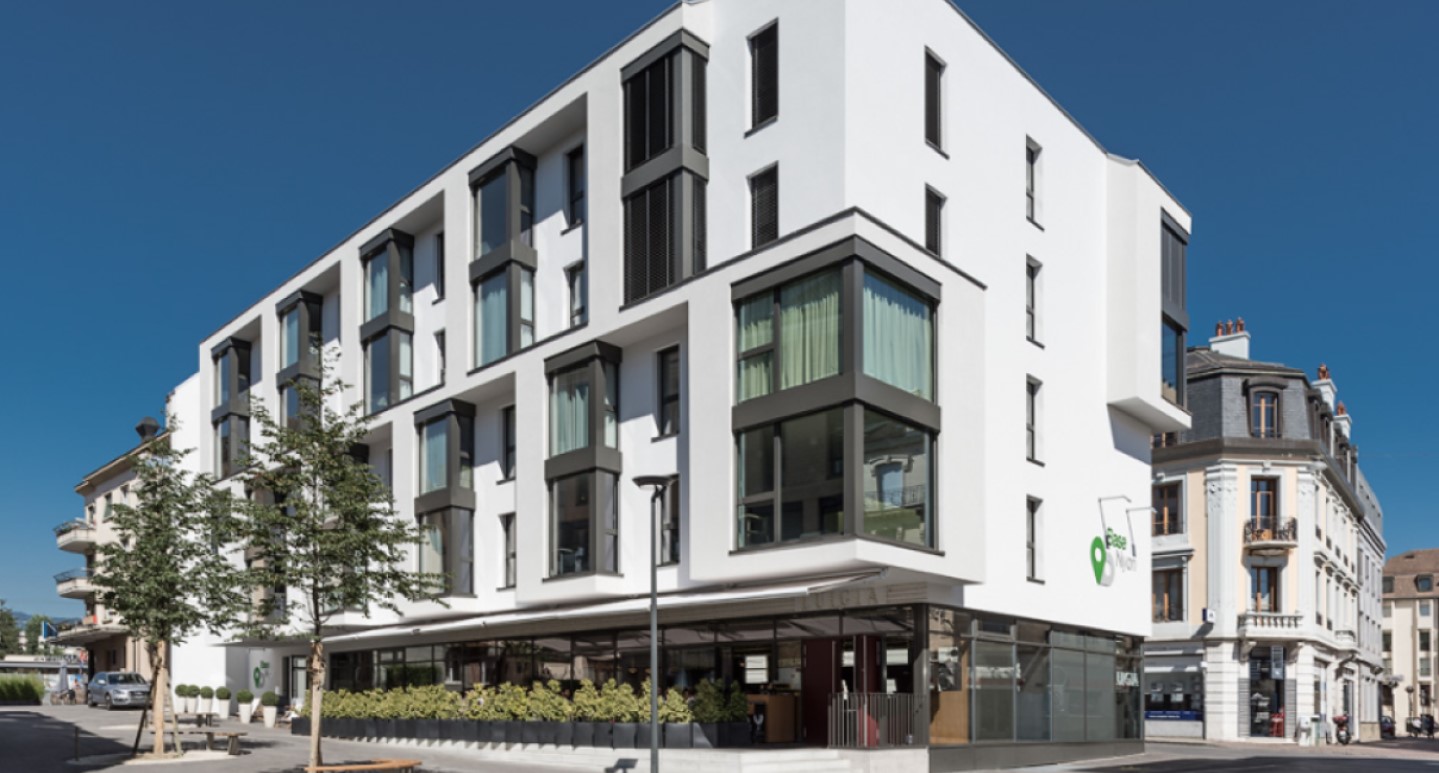


For hoteliers, and the businesses that support them, the Covid-19 pandemic is an existential battle that must be won, with jobs and livelihoods at stake. The good news is that with crisis comes creativity – we interviewed three Swiss-based professionals who spoke candidly about innovative ways they are adapting to the ‘new normal’.
This has been a year to forget for many in the hospitality sector. A world under virtual house arrest, with people unable or unwilling to travel, to experience, to mix or mingle. Impossible conditions in which to run a hotel or restaurant profitably.
From a public health perspective, Switzerland fared comparatively well during the first wave of the pandemic, back in spring 2020. The country saw significantly lower levels of infections and deaths than many European neighbors, despite being located in the heart of the continent.
Did this translate to good news for the Swiss hospitality industry in the spring/early summer period? Not a bit of it. “We had about a 80% drop off in guests,” says Cyril Derderding, Managing Director at FRAM Hospitality, which operates five hotels and one restaurant in Switzerland.
Just ponder that figure for a moment. Eighty per cent. If your business or employer saw that proportion of its revenue disappear virtually overnight, do you think it could survive? As it happens, Cyril’s hotels kept the lights on throughout the darkest times of Covid crisis, relying primarily on income provided by the group’s long stay resident guests.
“Our clientele comes mainly from the USA, China and the UK, and our segment is more business travel than leisure,” notes Cyril. “Unfortunately, these groups are simply not travelling at the moment, so in summer we had to switch our focus towards leisure guests. It was quite a change to have to deal with questions on the best restaurants, places to visit and tourist attractions!”

Cyril adds that it was a strategic decision to keep the group’s hotels open come what may, in order to maintain their places in the algorithms of the OTAs.
“We played that game,” he says. “We were also able to reduce our staff costs using furlough schemes, plus we outsource things like housekeeping, maintenance and F&B, so our permanent employee base is quite low anyway.
“With our long-staying resident guests, we have contracts that we don’t want to break. So we prefer to think in terms of a tough few years; then, when borders reopen and people can fly again, we’ll be here and ready for them. This way our resident customers know that we remained there for them during the hard times.”
A new meaning to ‘room service’
A similar tale emerges from the Ritz-Carlton Hotel de la Paix Geneva, where Yoann Pahud is Director of Sales and Marketing. This luxury property relies on international guests for 90% of its bookings. However, unlike the FRAM properties it opted to close its doors, shuttering from the end of March to the end of May.
When the lights came back on again, the rooms stayed stubbornly empty. And so it was time to deploy creative thinking to earn some much-needed revenue.
Yoann explains, “Restaurants in Geneva were starting to reopen, but we were seeing a reluctance among diners to expose themselves to a risk of infection by being in such public spaces.
“So we came up with this idea to offer private dining in our suites, which we called ‘Geneva Private Dining’. People could book a table as normal, but enjoy their dinner away from any other guests, in a beautiful private space. They could use the suite’s lounge area for an aperitif, enjoy a glass of Champagne on their balcony with views over Lake Geneva, then eat food prepared by their own dedicated chef and served by their own waiter.
“We saw real potential in marketing this ultra-privacy angle and so we engaged a PR consultancy to help us publicize it. We went on national TV, radio, and we were all over social media. Business-wise it’s been working quite well so far.”

“We saw real potential in marketing this ultra-privacy angle and so we engaged a PR consultancy to help us publicize it. We went on national TV, radio, and we were all over social media. Business-wise it’s been working quite well so far.”
Yoann Pahud
Another innovation launched by the hotel trades on the celebrated Genevois appetite for brunch. With the hotel’s restaurant running at reduced capacity, it struggled to cope with demand for brunch. So Yoann and his team devised a Brunch Basket that could be ordered and collected from the hotel, then enjoyed in the park, by the lake or in the customer’s home.
Finally, and perhaps most creatively, the hotel’s fine dining restaurant, Fiskebar, burst out from its four walls and onto a special floating terrace in the lake (see main image) offering outdoor, socially distanced Michelin-star dining throughout the summer months.
“Some of these ideas just popped up while we were walking beside the lake – for example our floating Fiskebar – while others like the private dining experience came from long brainstorming sessions where we would think of 50 ideas and then whittle them down into workable concepts,” explains Yoann.
“The big advantage of them all is that they were very ‘Instagrammable’, so we quickly built up word of mouth on social media. That was important, because we didn’t have the resources for a large-scale paid marketing push.”
Stepping up for hotel clients
While hoteliers were dipping into their wells of creativity, for the businesses that supply products and services to the hospitality industry a different, but no less challenging, dynamic has been at play.

An example is Hotel Spider, which is a subscription-based software solution that enables hotels to synchronize their pricing with online booking platforms.
“We work with flat fee subscriptions, and since we haven’t lost any customers our revenues are stable,” says Marco Baurdoux, one of the company’s founders.
“This means we’ve been able to devote our time to helping our hotel customers adapt their online sales as much as possible to these new and different situations. For example, we investigated the various aid packages that were offered by governments in some of our core markets, so we could help our clients find the right information for their hotel.”
The company also freely offered new technologies that could integrate with meta search channels like Trivago and Google, enabling hotels to provide updated information on their Covid-safety measures.
Adapt to today… and look for a better tomorrow
So, what has this crisis taught hoteliers? “Resilience is the most important,” says FRAM’s Cyril Dederding. “Also adaptability. We are here, we want to stay open, so we need to adapt to new customers if our main customer segment isn’t traveling.”
Yoann Pahud agrees, adding, “We had to completely re-learn everything that we thought we knew… and actually just forget everything we’d learned before. In this way we can be reactive to this very fast-changing environment. With limited staffing we learned to multi-task, for example. So reception staff learned how to serve customers in the restaurant, while restaurant staff learned how to deliver our private dining experience.”
As this article was being completed, Europe was still grappling with the so-called second wave of Covid-19. However, with faster tests and effective vaccines now appearing on the horizon, the hospitality industry can begin to look towards a brighter future when travel and tourism starts to climb back towards pre-pandemic levels.
“The world is going to come back to hospitality,” says Hotel Spider’s Marco Baurdoux.
“Within the Marriott group, there is definitely an amazing database of ideas and brains working together in order to recover as fast as we can, as well as to develop the new generation of hotels and experiences,” adds Yoann Pahud.
“Because nothing is going to be the same after this; so we must adapt.”
Master your career in hospitality
Take your hospitality expertise to a new level with our Master’s in International Hospitality Business.

















